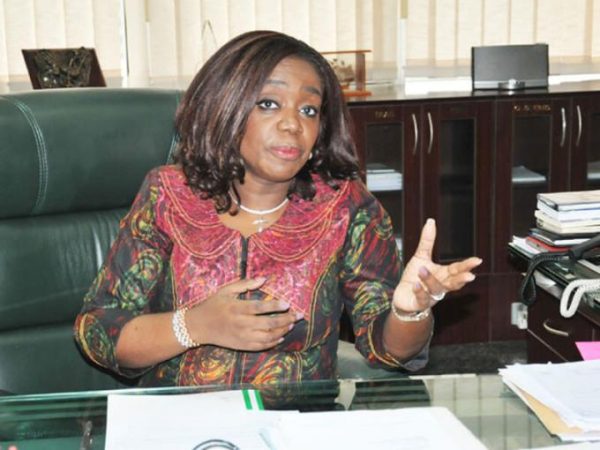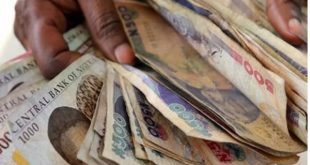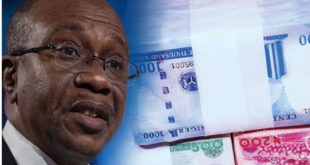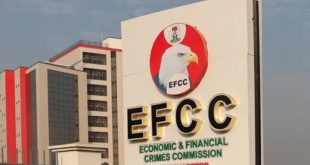
- Investors returning to Nigeria, says IMF
The federal government is targeting a seven per cent economic growth rate in the next two to three years, noting that the country’s economic outlook for the year 2018 and beyond is positive.
The Minister of Finance, Mrs. Kemi Adeosun, who made the disclosure at the fourth Ogun State Investors’ Forum, stated that the country was now resilient after exiting recession and has the potential to achieve a seven per cent economic growth in the next two to three years.

The discloursure is coming as the International Monetary Fund (IMF) has identified rising oil prices, the country’s foreign exchange (forex) measures, attractive yields on government securities, and a tighter monetary policy that have helped contain inflation in Nigeria as some of the reasons why investors are returning to the country.
Adesoun, according to a statement issued by her Special Adviser, Media and Communications, Mr. Oluyinka Akintunde, stated that the current administration had succeeded in building macroeconomic resilience for the country, particularly revising the funding mix, rebuilding fiscal buffers, enhancing foreign exchange reserves and focusing on import substitution strategies.

She said: “President Muhammadu Buhari has laid the foundation for the repositioning of the economy with series of reforms which are being sequenced to ensure maximum impact and benefits to Nigeria and the citizens.
“These include massive investments in infrastructure and social welfare across the country, improved revenue mobilisation, rebuilding of foreign reserves and stabilisation of exchange rate.”
The Nigerian economy had returned to growth in the second quarter of 2017 after five consecutive quarters of negative growth.

The country exited recession with a growth of 0.72 per cent, which was further consolidated with growths of 1.40 per cent and 1.92 per cent in the third and fourth quarters of last year respectively.
The minister explained that the quick reversal of the recession meant “less damage” was done to the economy and provided an opportunity for faster positive growth.
As revenue and growth return, Adeosun said the government would increase the fiscal space for infrastructure spending.
Revenue mobilisation, she noted, is potentially the master key to unlocking Nigeria’s huge growth potential and funding the infrastructure programmes.
“The federal government will continue to create more fiscal space for reforms to enhance productivity and opportunity in the non-oil sector.
“Greater focus will also be placed on cost efficiency, blocking revenue leakages and continued support to the states,” she added.
Recalling the actions taken by the administration on assumption of office in May 2015, the minister said it had two options of “balancing our books by cutting down on expenses and also investing massively in infrastructure and the economy.
“If we had gone for the first option of cutting down on our costs, it means we would have laid off workers.
“But we chose to stimulate the economy with massive investments in roads, power, rails and other infrastructure as part of deliberate efforts to grow the economy.
“We have invested over N2.5 trillion in infrastructure, especially on capital projects, between 2015 and 2017. If you move round the country, you will see ongoing works in roads, power, bridges, rails and other projects. These are important building blocks for the Nigerian economy.
“Look at the road sector when we came in, it was N19 billion that was invested in the sector in 2015. We invested N307.4 billion on roads in 2016 and N208 billion in 2017.
“Capital spending for the transport sector has also been remarkable. It was N6.49 billion in 2015, N143.1 billion in 2016 and N133.9 billion in 2017. From where we are coming from, it is a huge chunk, taking it from N6 billion to N133 billion. And there are so many other projects and sectors like that,” the minister stated.
Meanwhile, the IMF while stating in its country focus report titled: ‘Nigeria: Out of Recession and Looking Beyond Oil,’ few days after it released its Article IV report on the country., said growth in Nigeria recovered to 0.8 per cent in 2017 after a historic collapse in oil prices—exacerbated by falling oil production and inadequate policies which took a major toll on the economy.
Economic growth in the fourth quarter of 2017 was positive for the third consecutive quarter, driven mainly by recovering oil production. The economy—excluding the oil and agricultural sectors—saw a first modest year-on-year expansion, after seven quarters of contraction.
The fund pointed out that the recent rise in oil prices was supporting the recovery of the Nigerian economy, even as it urged policy makers to take steps to reduce unemployment and address poverty.
Furthermore, it noted that policies initiated under the Economic Recovery and Growth Plan (ERGP) have started to tackle some of the challenges facing the economy. It listed these to include the beginning of convergence in forex windows by reducing the number of existing exchange rates in the economy, a narrowing of the parallel market premium, some improvements in tax administration, anti-corruption efforts, and significant strides in improving the business environment.
“Despite these positive developments, the economic situation remains challenging, “saying the IMF. Inflation, especially of food prices, remains high. Vulnerabilities in the banking sector are rising.
“Low tax revenues are keeping the fiscal deficit high, leading to more government borrowing that is crowding out private sector activity. Distortions in forex markets are slowing efforts to attract longer-term investment and diversify the economy.
“Nigeria is also faced with important social, economic, and political challenges. Factors weighing on the economy include a large infrastructure gap, high gender and income inequality, corruption, and the ongoing humanitarian crisis in the North-east.
“Nigeria needs to forcefully address these challenges so that it can provide enough jobs for its young people in the years ahead. The economy is growing at close to three per cent annually, with youth (0 to 19 years of age) accounting for more than 54 per cent of the population.
“Demographic trends imply that Nigeria could be the third most populous country in the world by 2050. This could present a significant challenge to per capita growth, requiring faster action to improve per capita incomes, reduce high unemployment, and bring down poverty,” it added.
The IMF mission chief and senior resident representative in Nigeria, Amine Mati, noted that “following through on planned reforms now and at full steam is what will lift Nigeria’s growth rates to their potential.”
He stated that reaching growth rates that would make a difference in the country requires urgent implementation of a well-designed and comprehensive reform package that would among others, include a growth-friendly fiscal policy aimed at reducing oil revenue dependence and creating space for priority expenditure (infrastructure and social safety nets) for the private sector; keeping monetary policy tight in the short term to contain inflation; and create a unified and more flexible exchange rate.
 MMS PLUS NG – Maritime, Aviation, Business, Oil and Gas News Online Newspaper with coverage in Maritime, Oil and Gas, Aviation, Power and Energy as well as Financial News
MMS PLUS NG – Maritime, Aviation, Business, Oil and Gas News Online Newspaper with coverage in Maritime, Oil and Gas, Aviation, Power and Energy as well as Financial News









